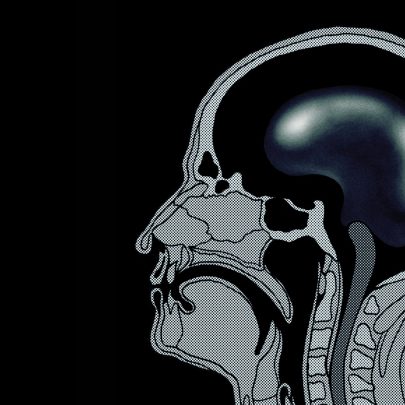Jun 26, 2015 Schools
This story first appeared in the June 2015 issue of Metro.
The most influential person in Auckland education doesn’t even work in the field. He’s retired. John Morris was headmaster of Auckland Grammar for 20 years (1993-2012) and, like his predecessor John Graham, he left an enormous legacy.
Much of what happens in Auckland schooling is down to the rivalry between Grammar and Kings. If you live in the Grammar zone, do you send your kids to Grammar, or is a private school a better bet? If Grammar wins that one too often, the private schools will die. If Grammar loses, what’s the point of the zone?
Morris upheld the grand old way. When people asked him what was special about the school, he showed them the hall. Wood-panelled, star-studded with rolls of honour and headmasters’ portraits, it reeks of the deepest English traditions. But Morris stood for far more than that.
His school taught only the core subjects (sports and the arts are largely extra curricular; modern subjects like “media studies” are simply not offered). He focused on academic standards, with frequent testing and ranking, and he introduced the Cambridge exam system to reinforce his traditional focus. He entrenched a boarding-and-scholarship system that attracts boys from South Auckland and the Pacific and, not coincidentally, keeps the first XV in good shape. Warrior Konrad Hurrell, for example, was brought in from Tonga.
One measure of his influence is that his successor Tim O’Connor, now in his fourth year, has changed almost nothing of the Morris way. Another is that the private schools are in trouble: waiting lists have largely evaporated. That’s not all down to Grammar, of course, but it would not have happened if Grammar wasn’t considered good enough.
But the biggest measure of Morris’ influence is found in the other schools. Many (such as Macleans, Mt Albert Grammar and the Westlakes) explicitly seek to emulate its values, and methods. The Cambridge system is now widespread among upper decile schools and a few others. Many Auckland parents perceive the Grammar way as The Way.
And yet. The top academic results in Auckland, every year, are scored by St Cuthbert’s College, where principal Lynda Reid presides over a much more “liberal” academic programme than Morris ever had time for. At Western Springs, which is liberal, uniform-free and defiantly not signed up to the Grammar way, they score the country’s best results for a decile eight state coed.
As for the good lower decile schools, they are inspired less by Morris than by the extraordinary results achieved by principal Anne Miles at decile one McAuley High School. A bunch of principals have determinedly prioritised academic achievement, without losing sight of the cultural opportunities and wider pastoral care requirements of their students. Brian Evans at Kelston Boys, Nick Coughlan at One Tree Hill and Vaughan Couillault at James Cook are among the many leading this charge.
At the primary and pre-school level, the most influential educator — and inheritor of the mantle of Marie Clay — is early childhood reading specialist Professor Stuart McNaughton. World-renowned and an important advisor to the government, McNaughton is director of the University of Auckland’s privately funded Woolf Fisher Research Centre, where the focus is on Maori and Pacific Island achievement.
It’s fashionable to deride the achievements of Stuart McCutcheon, vice-chancellor at the University of Auckland. Don’t be fooled. He leads the country’s highest-ranked university with an unwavering ambition to create an elite institution, and is currently overseeing a remarkable expansion of research facilities into the new campus in Newmarket. The university isn’t ranked quite as high in the world as it used to be, but that’s not McCutcheon’s fault: Asian universities are charging up the lists and no one anywhere else is keeping up.
Meanwhile, next door at AUT, vice-chancellor Derek McCormack has turned the former technical institute into New Zealand’s second-largest university. They’re future-focused, adapting fast to new fields of study and strong in interdisciplinary teaching and research. Both universities boast a clutch of world-leading researchers, especially in medicine and the social sciences.
The most respected university head of all, however, is Steve Maharey, vice-chancellor of Massey University. Massey’s Albany campus is small, which limits his influence on Auckland, but Maharey is, unlike McCutcheon and McCormack, a public intellectual and a key thinker in the evolution of New Zealand’s economic and cultural life.
Also in the public intellectual sphere, UA’s distinguished professor Dame Anne Salmond is the leading historian of the meeting of Maori and Pakeha cultures and a very popular writer and speaker. She’s an extremely influential voice in the difficult ongoing process of our nation building.
The Top 5 Most Influential in Education
1. John Morris
2. Stuart McCutcheon
3. Derek McCormack
4. Lynda Reid
5. Stuart McNaughton
Not as influential as you might think
Peter Gluckman: New Zealand’s first chief science advisor to the prime minister is an academic and world-famous researcher into the way a baby is affected by its environment between conception and birth. His research is powerful enough to make New Zealand the incubator of a profoundly improving approach to health, and we’re sure he tries. But there’s little evidence the government listens to him much at all — either in his own field, or on climate change or many of the other issues he speaks up about. Tragic, really.
Focus: Heather McRae & Lynda Reid
By Aimie Cronin
They’re among the country’s top-performing principals. Lynda Reid, at St Cuthbert’s College, and Heather McRae, at Diocesan School for Girls, run private schools whose facilities, grounds, staff quality and academic results (in the mid-90s on most measures) would be inconceivably flash to most people in the state sector. But neither of them is much interested in playing ladies.
They have uptown accents and business brains, and they describe themselves as educators with feminist principles. They want their girls, when they get out into the world, to be better than excellent: they want them to be powerful.
Reid has led St Cuth’s for nearly 20 years. She’s just back from a trip to Beijing and London where she hosted a cocktail party at New Zealand House and worked on building the old girls’ network.
She wasn’t born to this. Raised by a solo parent in a state house in Christchurch, she chose to go to a single sex school where she wore a hat and gloves. The neighbourhood kids teased her for being posh, which she wasn’t, then. She is now, by anyone’s standards. She was the first in her family to get a degree.
McRae was principal at Pakuranga College before getting the job at Dio in 2009. She grew up on a farm in Pahiatua. Her grandmother went to Diocesan in 1906 and McRae’s mother liked to threaten her daughter with being sent there if she didn’t behave. McRae has a biochemistry degree but took up teaching because she got bored in the labs.
At Dio, she’s busy adding subjects to the curriculum that embrace knowledge-based industries, and has introduced classes in ethics, values and leadership. “We want to turn out grads who are great people as well,” she says.
At St Cuth’s, there’s a shift towards personalised learning and the school is about to launch business as a core subject. Reid wants to see “if we can start building capacity in our girls right from year one”.
In old-moneyed schools like these, there’s tension between change and tradition. The opportunity for innovation and also the need to answer to boards and parents who might push the other way. How they manage that at St Cuth’s and Dio, and the degree to which their students embrace the power they’re offered, sets benchmarks for the country. That’s profound influence.





